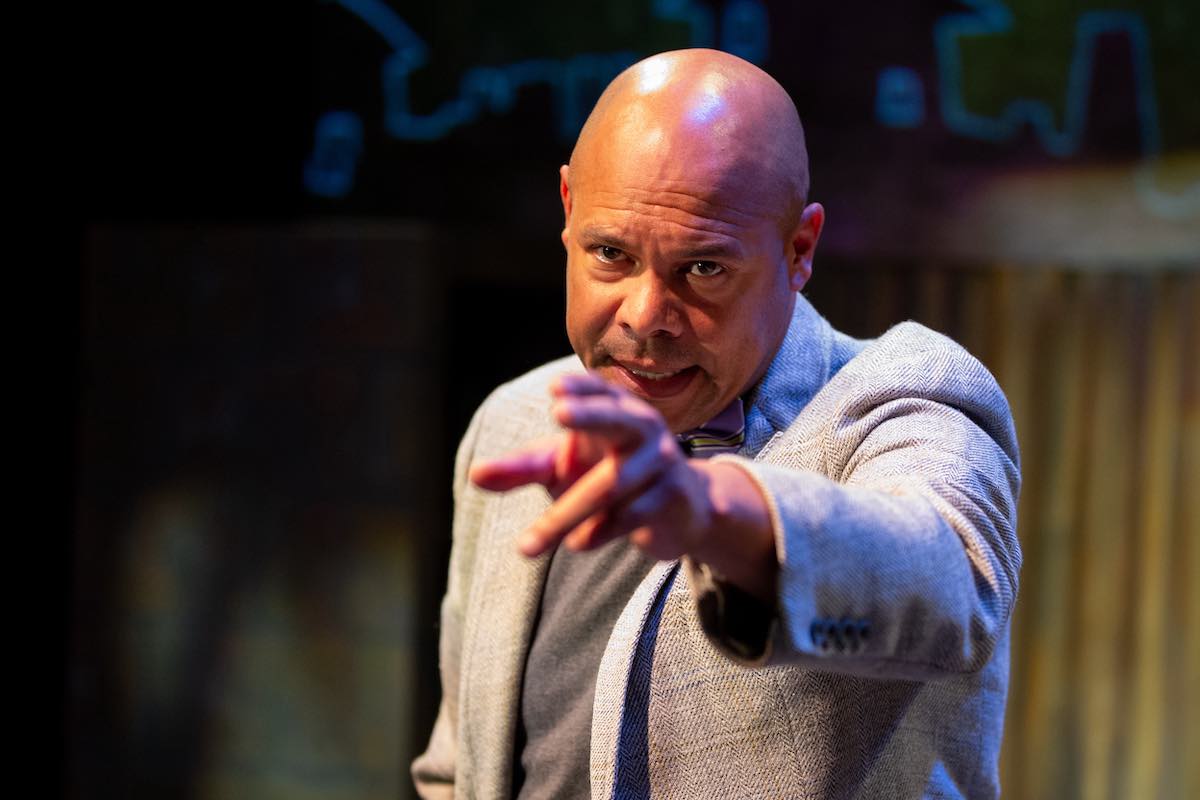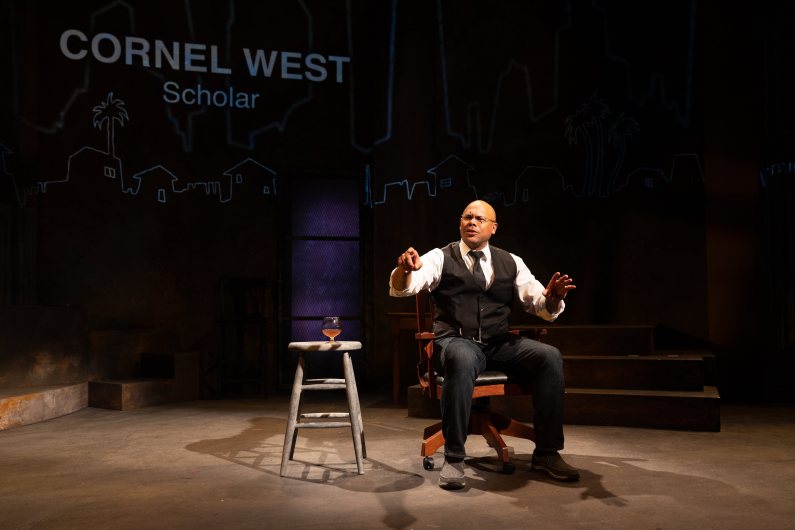Chris Butler Stars in ‘Twilight: Los Angeles, 1992’ in Ventura
Rubicon Stages Anna Deavere Smith's Play on the 30th Anniversary of the Uprising

People responded in many different ways to the April 29, 1992, verdict that acquitted the four Los Angeles police officers seen beating Rodney King in what became one of history’s most viral pre-internet videos. As night fell, thousands of L.A. residents took to the streets, while thousands more hid in their homes or fled the area. This week marks the 30th anniversary of the events variously known as a “riot,” an “uprising,” and a “rebellion.” In recognition of this date, the Rubicon Theatre will mount a new production of Twilight: Los Angeles, 1992, the playwright Anna Deavere Smith’s searing docudrama/one-person show. The 2022 version, which stars Chris Butler and is directed by Butler and Jenny Sullivan, plays at the theater in Ventura through May 15. It’s mandatory theater going for anyone interested in the uprising, American theater history, or the present and future of civilization in Southern California.

The “Twilight” of the play’s title refers to the timing of those events, which developed as night was falling on that day in 1992, and to one of the many voices one hears in Deavere Smith’s magnificent tapestry of perspectives. “Twilight” is the nickname of a gang member that Smith spoke to during her extensive series of interviews following the violence. His self-perception splits between a positive interpretation of his name as meaning “twice the light,” as in being wiser, and being in between the worlds of night and day, caught in a racially charged limbo.
Now we have an opportunity to revisit an event — the uprising — that has only taken on more resonance with the years and to do so through a lens that’s sharpened by hindsight and polished by art. When I spoke with director Jenny Sullivan, she commended Smith’s ability to locate the human part in every person she portrays and resist the urge to judge individuals based on a limited perspective.
This edition of ON Culture was originally emailed to subscribers on August 2, 2024. To receive Leslie Dinaberg’s arts newsletter in your inbox on Fridays, sign up at independent.com/newsletters.
Twilight: Los Angeles, 1992 consists of 40 separate monologues, all spoken by one performer. Chris Butler, the actor/director who has taken on this monumental task, acknowledged the difficulty of learning such a complex and substantial script and reflected on how the show benefits from that approach. “I’ve done some heavy lifting before,” he told me, particularly in roles with the Oregon Shakespeare Festival, where he’s been Othello and Walter Lee in A Raisin in the Sun. He feels that by having one person do all the voices in Twilight, the show establishes an essential point by metaphor: “We are all one.”

In her introduction to the reader’s edition of Twilight: Los Angeles, 1992, Deavere Smith insists that, despite being involved in the search for a better future for our society, as a playwright and actress, she’s not “looking for solutions to social problems.” Instead, she sees her role as looking at the processes of these problems. “Acting is a constant process of becoming something,” she writes. “It is not a result.” That same dedication to “the humanness inside the problems, or the crises” remains at the heart of this effort. The spoken words of these people, apprehended and rendered significant through art, can’t solve the problems we all face, but they can help us stay human as we work through them.
Twilight: Los Angeles, 1992 will be at the Rubicon Theatre from April 27 through May 15. For tickets and information, visit rubicontheatre.org.
Support the Santa Barbara Independent through a long-term or a single contribution.




You must be logged in to post a comment.